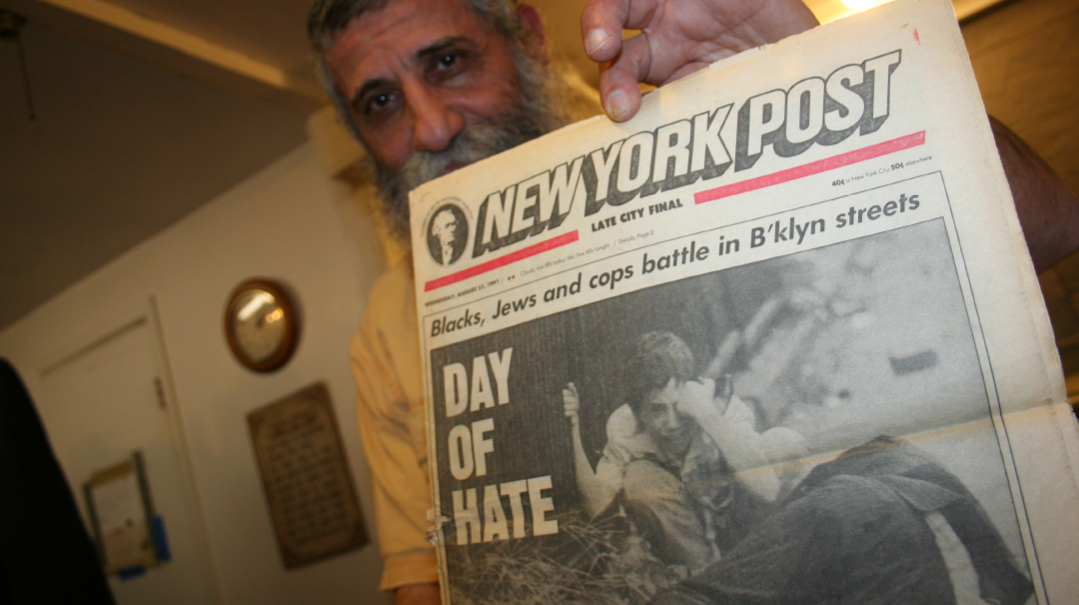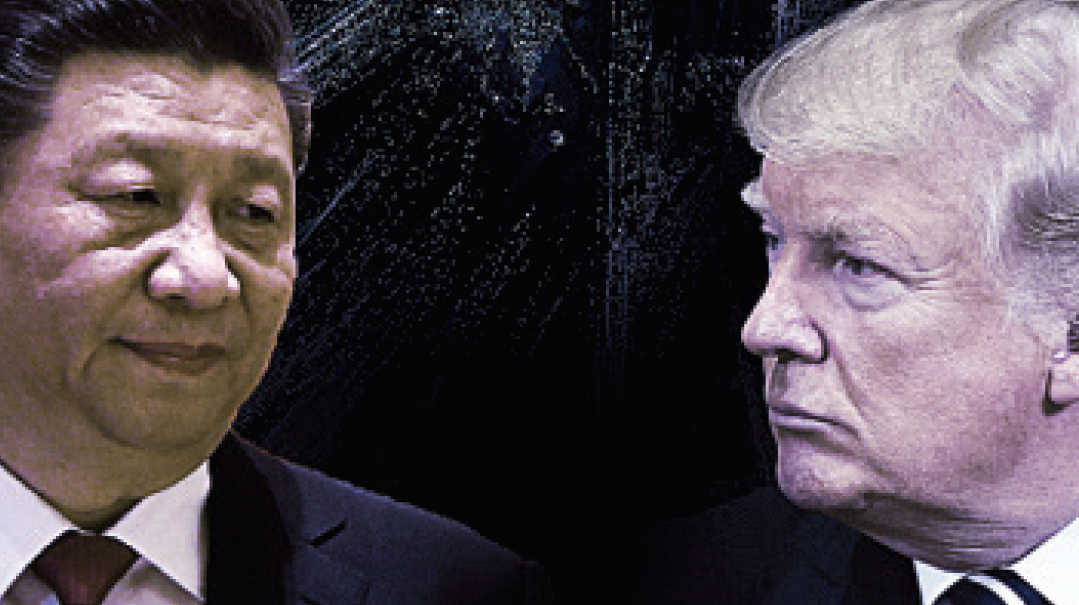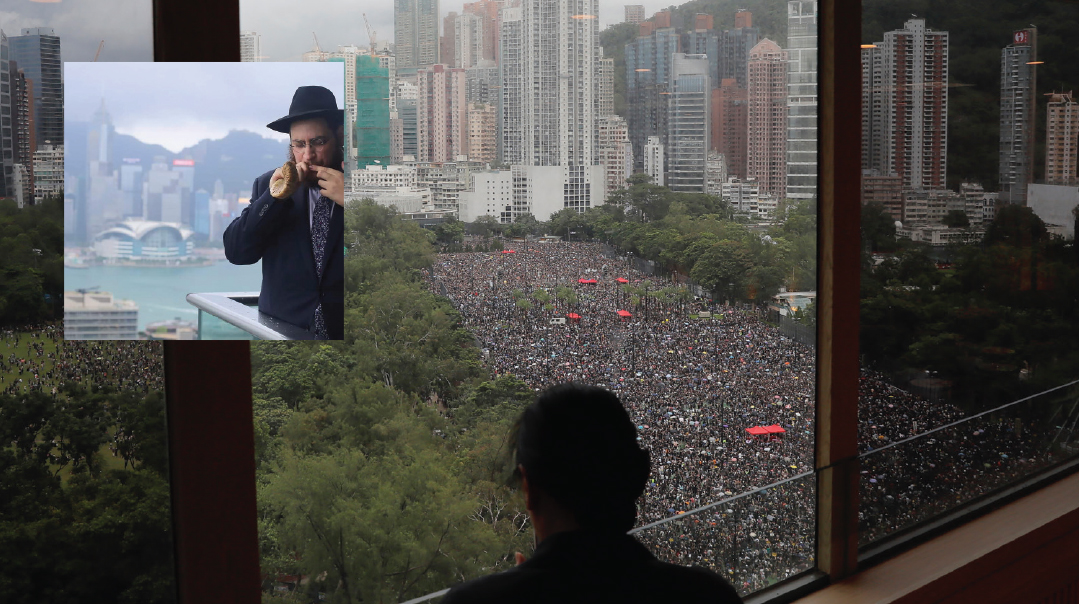Israel’s Capital Gain: 7 Takeaways on Trump’s Jerusalem Proclamation


1.It’s a Fundamental Game-Changer
It’s a game-changer says Eugene Kontorovich a constitutional law professor at Northwestern University and director of the international law department at Jerusalem’s Kohelet Policy Forum: “President Trump explicitly included the Kosel and Temple Mount in the description of the Jerusalem he was recognizing thus confirming Jewish sovereignty over the holy sites.”
However didn’t Trump say Jerusalem “must remain a place where Jews pray at the Western Wall where Christians walk the Stations of the Cross and where Muslims worship at al-Aqsa Mosque”? Does that mean the status quo remains and nothing’s really changed?
“The status quo is about access not sovereignty ” Kontorovich says. “What’s crucial here is the borders.”
However Trump also said he wasn’t taking a position on the specific boundaries of Israeli sovereignty in Jerusalem. Doesn’t that also mean nothing has changed?
“He said that final status borders will be set by agreement ” Kontorovich says. “He recognizes Jerusalem as Israel’s [but they can give it away in any future negotiation].”
Kontorovich also says it explodes the notion that no major country would ever recognize Israeli claims across the 1949 Armistice Lines. Jews in the Old City Mount of Olives and other historic and holy areas are no longer settlers according to the US. “This is a policy reversal that supporters of Israeli concessions claimed could never happen and it has.”
2. Trump Cements His Gradualist Credentials
Trump’s adversaries argue that a toxic brew of political inexperience and inflammatory and undiplomatic tweets are warning signs of a president who one morning will wake up on the wrong side of the bed and launch a nuclear war. In recognizing Jerusalem as Israel’s capital while signing a waiver to keep the US embassy in Tel Aviv Trump once again showed he makes his moves in increments following the pattern he established with the Iran nuclear deal. Instead of ripping it up as promised he found a middle ground. By refusing to certify Iran’s compliance with the deal Trump opened the door for Congress to re-impose sanctions and retighten the noose around Iran’s economic neck.
3. Removing Settlements as a Friction Point
In general President Trump and his Orthodox Jewish peace team have been careful not to place the settlement issue front and center as the Obama and Bush administrations did to the detriment of the peace process. So says Deputy Prime Minister Michael Oren who served as Israel’s ambassador to the US in Obama’s first term.
“No Israeli government left right up or down can freeze building in Jerusalem over the 1967 lines and most people don’t even remember where those lines are ” Oren told Mishpacha during a conference call with the foreign press corps. “There are huge neighborhoods that lie beyond the Green Line. Nobody thinks of them as settlements but in the past we were denounced and even condemned for building there. That’s a very harsh word in diplomacy to condemn. Usually you reserve it for terrorists but that word was used to describe building in Ramat Shlomo a neighborhood in northwest Jerusalem — it’s not even in east Jerusalem — by the previous administration.”
While Oren urges Israel to exercise prudence in future construction in Jerusalem Judea and Samaria he says considering “US recognition of Israeli sovereignty over the entire city and acknowledging the fact that final borders will be determined in direct final status negotiations — if they ever complete much less start — I don’t expect that to be a friction point.”
4. Abu Mazen Is Secretly Ecstatic
For 82-year-old Abu Mazen his dream of snatching Jerusalem from the grasp of the infidels looks more remote than ever. He conferred an undiplomatic slap to Trump’s face by announcing his refusal to see Vice President Mike Pence when he arrives in Israel next week. But secretly Trump’s proclamation takes Abu Mazen off the hook says Arye Mekel who served as a top political advisor to Yitzhak Shamir when he was Israel’s prime minister.
“At his age Abu Mazen doesn’t want any peace process ” Mekel says. “He will not sign a peace agreement and give up the right of return only to be cursed by Muslims for the next 1 000 years. So now he has it made. He will say he cannot make peace because of this. The Europeans will support him because they were against this move and they hate Trump so they will give Abu Mazen more money because he was the poor man kicked by the big bully.”
5. It Makes America Look Tough Again
Trump’s move underscores the revival of US unilateral — rather than multinational — action says Yoram Ettinger a former minister for Congressional affairs at Israel’s embassy in Washington. It places Trump Israel’s supporters in Congress and most Americans on one side of the fence and the vacillating worldviews of the State Department the UN and the European Union on the other.
“It reflects the realization that succumbing to Arab pressure and threats fuels violence while defiance of pressure and threats deters rogue elements ” Ettinger notes. He adds that non-implementation of the 1995 Jerusalem Embassy Act failed to advance the peace process and only succeeded in radicalizing Arab expectations and undermining the US posture of deterrence which is critical for the US national security and global sanity.
6. It’s Win-Win for Binyamin Netanyahu
When Binyamin Netanyahu pounds the table he is being passionate about three issues near and dear to his heart: Israel’s economic development deterring Iran and ensuring a unified Jerusalem. Trump did not embrace Netanyahu’s version of unification but in his White House speech Trump reiterated that “Israel is a sovereign nation with the right like every other sovereign nation to determine its own capital.” Trump didn’t define “the specific boundaries of Israeli sovereignty in Jerusalem or the resolution of contested borders ” leaving it up to “the parties involved.” Israel will wait until VP Pence comes and goes to pass laws expanding Jerusalem’s borders or following through on proposals to redraw Jerusalem’s maps excluding Arab neighborhoods but Trump’s unilateralism opens a door for Israel to make a few moves on its own.
7. Time Is on Israel’s Side
The mantra oft-repeated by the international community and parroted obediently by the Israeli left is that the clock is ticking on Israel. They use doomsday demographics threats of boycotts divestment and sanctions (BDS) and stern warnings of international isolationism as proof that Israel must accede to every demand made of it and right now. Trump’s announcement of Jerusalem as Israel’s capital combined with America’s vigorous defense of Israel in the UN its strong opposition to BDS (not to mention the 3.3 million foreign tourists who have visited Israel this year) reduces the pessimists to a term former Vice President Spiro Agnew once used to describe the media critics of the Nixon administration: “nattering nabobs of negativism.” (Excerpted from Mishpacha Issue 689)
Oops! We could not locate your form.













